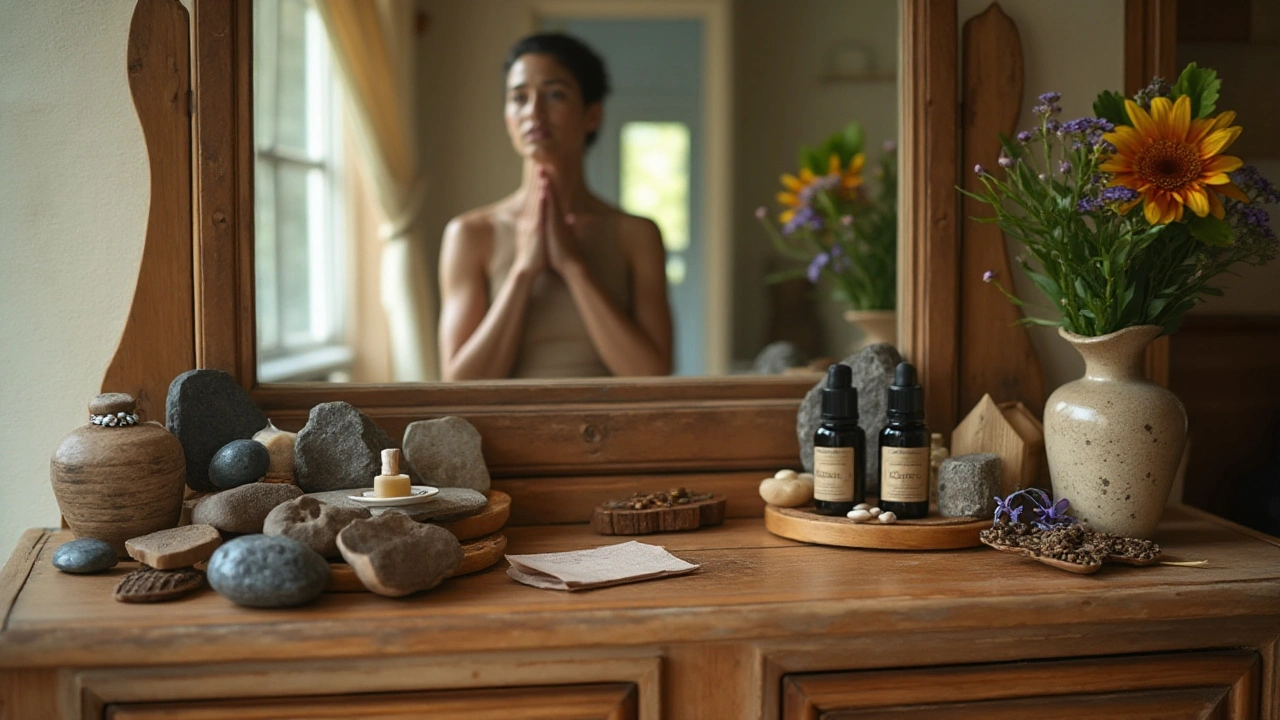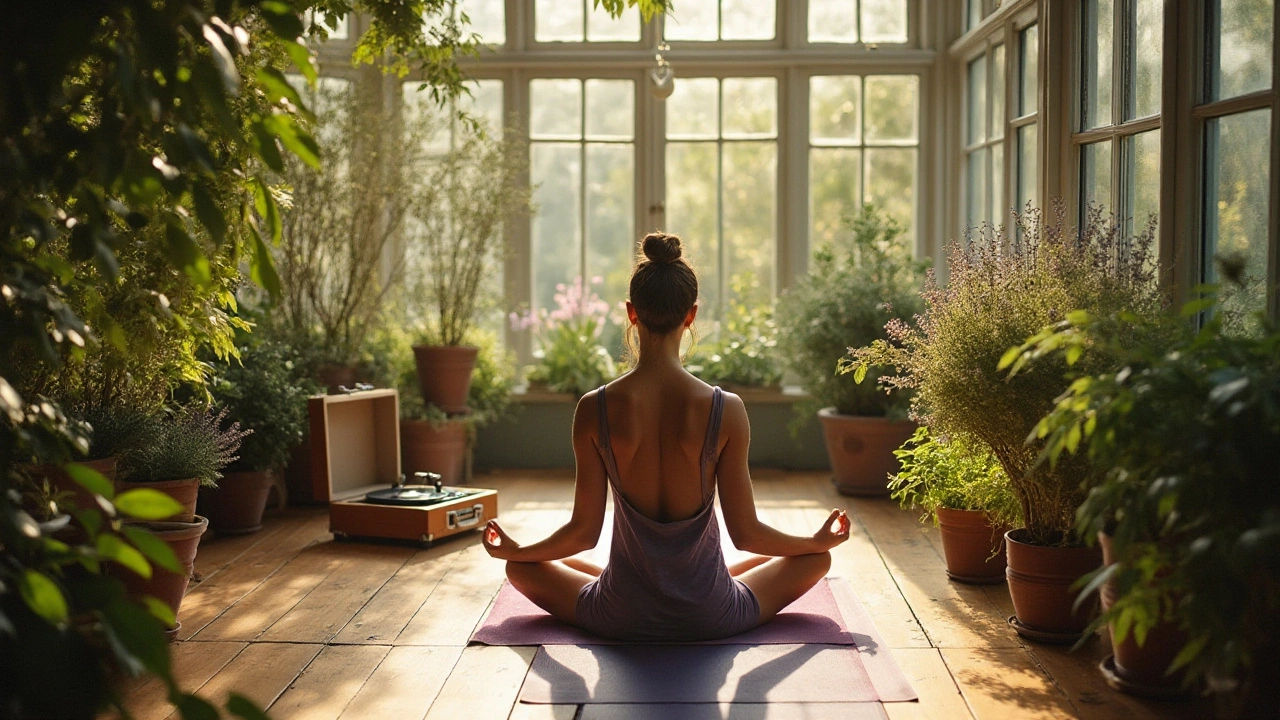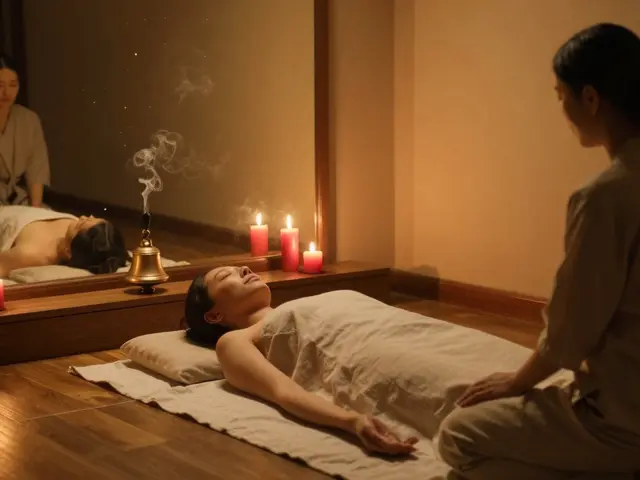In the hustle and bustle of our lives, many of us overlook the importance of nurturing our relationship with ourselves. Practicing autoerotica is more than just a physical experience; it's about understanding and embracing who we are. By fostering self-respect and kindness, we unlock a deeper intimacy with ourselves.
Autoerotica should be approached with a sense of curiosity and self-love, creating a space where vulnerability becomes a source of strength. Through this article, we will explore ways to maintain a mindful practice that supports mental, emotional, and physical wellness.
- Understanding Autoerotica
- Creating a Respectful Environment
- Mindfulness in Self-Pleasure
- Debunking Myths and Misconceptions
Understanding Autoerotica
Autoerotica refers to the practice of engaging in self-pleasure. While often associated with merely a physical act, it encompasses far more than just exploring your senses. It includes understanding one's desires, exploring fantasies, and accepting that one's needs are valid. This practice can serve as a powerful tool for self-discovery and emotional healing when approached with self-respect and mindfulness.
At its core, autoerotica emphasizes the need to foster a healthy relationship with oneself. This involves recognizing self-worth, understanding personal boundaries, and practicing self-kindness. When engaging in this form of self-care, it's essential to create a safe and comfortable space where you can feel liberated to explore without judgment. Allow yourself the grace to be patient and curious—your body deserves the same love and attention you would give to a partner.
Historical Perspectives
Autoerotica isn't a contemporary invention, though modern society is increasingly recognizing its emotional and mental health benefits. Ancient cultures had varied views on self-pleasure, with some celebrating it as part of natural human behavior while others shunned it. Today, the conversation is shifting towards viewing autoerotica as a form of self-care. Dr. Betty Dodson, a renowned advocate for sexual empowerment, once said, "If you can't take care of your own sexual needs, how can you expect a partner to know them?" Her work continues to inspire those seeking to unlock a deeper understanding of themselves.
In a world that often positions self-pleasure in the shadows, claiming this act as a component of your self-love routine can be empowering. By approaching autoerotica with respect and a generous spirit, you're not just satisfying a physical urge. You're also nurturing your emotional, psychological, and spiritual growth, and that is incredibly significant.
In recognizing the broad potential of autoerotica, it is beneficial to ground the practice in personal growth. This approach posits self-touch as a means to understand what feels good and why, exploring one's own body without preconceived notions. By leaning into this space, we construct an atmosphere where shame dies and acceptance thrives.

Creating a Respectful Environment
Creating a space that honors your practice of autoerotica is essential if you want to connect deeply with yourself. The environment you choose should not only be physically comfortable but also emotionally welcoming. It's about crafting a sanctuary where you feel at ease to explore your desires without judgment. Consider the lighting in your room; dimming the lights can help to create a calming and intimate ambiance. Soft, warm light promotes relaxation, allowing you to tune into your senses. Aromas can also play a pivotal role. Introducing a gentle fragrance through candles or essential oils can trigger sensory memories that enhance relaxation and presence. Something as simple as lavender or sandalwood can set the right mood, helping you settle into a mindful state.
Sound is another dimension often overlooked when setting up your self-care haven. Whether it's soothing melodies or the sound of rain, the right auditory backdrop can enhance your experience. Consider creating a playlist that inspires tranquility or positivity. Some individuals find that silence best aids their focus, allowing inner thoughts and sensations to echo more clearly. The goal is to personalize your environment to match your preferences and needs without outside influences dictating them. Remember, this is your space to engage with self-directed intimacy, so it should resonate with your personal sense of calm and pleasure.
Let's not forget about physical comfort — a cornerstone of any self-respect practice. Ensuring that your environment aligns with your body’s needs is vital. Soft bedding or a plush armchair can make all the difference, providing support and coziness. Match your surroundings with supportive textures that invite your skin to breathe. Have a warm blanket nearby or a robe that makes you feel secure. Accessibility to tools or objects that enhance your session, like massage oils or vibrators, should be thoughtfully placed and within reach, maneuvering your hand gracefully, rather than disrupting the flow of your moment.
Setting boundaries is equally critical in creating a respectful environment. This means more than just a temporal boundary where you carve out time free from interruptions. It is about cultivating an attitude where negative self-talk has no place. Embrace honesty with yourself and release any self-imposed pressures. Permit room for exploration without stringent expectations of performance. A renowned expert once stated,
"Our environment should be a mirror that reflects and motivates our journey. It must nurture and not undermine our search for self-understanding."Let your space nurture your spirit, a zone where every inch is an invitation to discover new aspects of your being.

Mindfulness in Self-Pleasure
Practicing mindfulness during self-pleasure is about tuning into your senses, allowing yourself to be present in the moment. It’s easy to let your mind wander, especially when routines and ruts settle in. To truly engage in the art of autoerotica, it's essential to focus on each sensation, recognizing the subtleties of touch and emotion.
Mindfulness starts with creating a serene environment away from distractions. Think about dimming the lights and playing soft music, or lighting candles to invite calmness. This intention sets the tone for an experience that melds physical and mental pleasure. Your mind and body should work in harmony rather than racing ahead to an end goal. Marc David, founder of the Institute for the Psychology of Eating, suggests that "giving ourselves permission to be present with no expectations can transform our experience of pleasure."
Once your space is ready, concentrate on your breathing. Deep breaths allow you to become more in touch with your body’s rhythm. As you breathe, notice each inhalation filling your chest, and every exhalation releasing tension. The more you immerse yourself in this process, the more connected you’ll feel to your energy and desires. This approach nurtures a sense of self-care, deepening your understanding of what brings you joy in the act of self-respect.
The journey of self-exploration also benefits from an openness to new sensations. Incorporating mindfulness isn't just about the tools used but how you use them. For some, this might mean changing the pace or trying different textures that awaken new responses. Consider the experience as an artistic exploration, where you can uncover layers of pleasure and intimacy within yourself. When you're mindful, your senses come alive, enhancing every touch and every sigh.
To put it all into practice, consider these steps:
- Set your intention - Decide what your focus will be during your self-pleasure session.
- Prepare your space - Create an environment conducive to relaxation.
- Connect with your breath - Use deep breathing to anchor yourself in the present moment.
- Explore without judgment - Embrace the sensations and emotions that arise naturally.
- Reflect - After your session, take a moment to appreciate the experience and note any insights.
By dedicating time to mindful autoerotica, you foster not only self-awareness but self-appreciation as well. It's a practice that enriches both your mental and emotional landscapes, leading to increased confidence and a deeper understanding of your needs and boundaries. Remember, at its heart, mindfulness is about kindness—towards yourself and your journey.

Debunking Myths and Misconceptions
Autoerotica, a natural human experience, has often been clouded by myths and misconceptions. One common myth is that engaging in self-pleasure is somehow shameful or wrong. This belief stems from outdated societal norms that viewed sexual pleasure as taboo. However, modern understanding highlights the importance of exploring one's desires in a healthy and respectful manner. Experts emphasize that indulging in self-pleasure is a normal part of sexual health, helping individuals learn what they enjoy and how their bodies respond. By fostering this self-awareness, people build a stronger sense of self-acceptance and body confidence.
Another misconception is that autoerotica can lead to isolation or relationship issues. On the contrary, it can actually enhance relationships by fostering open communication and reducing performance anxiety. When individuals have a confident grasp on their own preferences, they're better equipped to share these insights with partners. This improved communication can lead to more fulfilling experiences for both parties. It's crucial to differentiate between solitary practice and mutual exploration, recognizing that both have their unique benefits in different contexts.
Some also believe that frequent engagement in autoerotica might have negative implications for mental health. In reality, self-pleasure can be a powerful tool for stress relief and mental wellness. The release of endorphins and other feel-good hormones during sexual pleasure promotes a sense of relaxation and happiness. In fact, using autoerotica as a form of self-care can contribute to emotional stability. As such, it's important to approach these practices with an open mind and understand the psychological benefits they can offer.
"Rather than detracting from the quality of interpersonal relationships, self-pleasure can actually enrich them by allowing individuals to explore and understand their personal desires," notes Dr. Emma Richards, a renowned therapist in sexual health.
In addressing the misconceptions, it's helpful to consider the role of physical health too. There's a misconception that autoerotica might diminish sexual function, but studies show it contributes to a better understanding of one's sexual response cycle. Understanding one's cycle can be an educational journey, offering insights that enhance all forms of intimacy. It's a personal experience that leads to a deeper connection with one's body and a greater appreciation of one's uniqueness.
It's clear that the myths surrounding autoerotica do more harm than good, often leading to feelings of guilt or shame. The best approach is to view it as an empowering practice that nurtures both body and mind. Embracing self-exploration with self-respect, kindness, and curiosity can transform these practices into a beautiful journey of self-discovery. By shedding light on the facts and highlighting the positive aspects, we create an environment where everyone can feel comfortable in their own skin.






